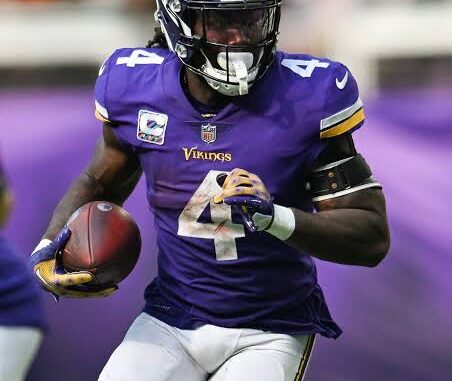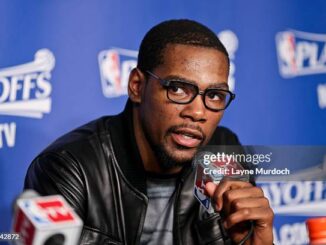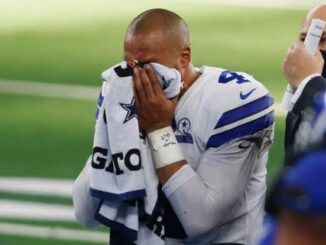
The Dallas Cowboys entered the offseason with a clear objective: to strengthen their roster and make a serious run for the Super Bowl. One key area of focus was the running back position, where the team aimed to complement their star player, Tony Pollard, with a top-tier addition. The name at the top of many lists was Dalvin Cook, the former Minnesota Vikings standout. However, as the offseason progressed, the Cowboys failed to secure a deal for Cook, a situation that left fans and analysts pondering the implications of this missed opportunity.
Dalvin Cook has been one of the most dynamic running backs in the league since being drafted in 2017. Known for his explosive speed, agility, and ability to break tackles, he has consistently put up impressive numbers. In his time with the Vikings, Cook established himself as a dual-threat back, excelling in both rushing and receiving. His ability to stretch the field and serve as a reliable target in the passing game made him an attractive option for any team looking to bolster their offensive capabilities.
The Cowboys had a compelling case for pursuing Cook. After the departure of Ezekiel Elliott, who was a cornerstone of their offense for years, the team needed a proven player to share the load with Pollard. Pollard has shown flashes of brilliance, particularly in the 2022 season when he emerged as a legitimate offensive weapon. However, the Cowboys’ coaching staff recognized that relying solely on Pollard could expose them to injury risks and reduced effectiveness over the course of a long season.
Negotiations for Cook reportedly progressed at various points, with speculation mounting that the Cowboys were serious contenders for his services. However, as the offseason wore on, it became evident that the organization was hesitant to commit the necessary resources, both financially and strategically. While the allure of adding a player of Cook’s caliber was strong, the Cowboys ultimately decided against pursuing him.
The reasons for this decision can be multifaceted. First, the financial aspect plays a critical role. Cook was released by the Vikings, which made him a sought-after free agent. However, the Cowboys are also facing salary cap constraints, and signing a player like Cook would have required a significant investment. With other needs on the roster, particularly on defense and at wide receiver, the Cowboys had to weigh the cost-benefit analysis of bringing in another high-profile running back.
Furthermore, the NFL landscape is shifting. Many teams are adopting a committee approach to the running back position, relying on multiple players to share the workload rather than investing heavily in a single star. This strategy reduces the risk of injury and provides teams with fresh legs throughout the season. The Cowboys seemed to recognize this trend, opting instead to focus on developing their existing talent and possibly bringing in lower-cost alternatives.
The decision not to pursue Cook also highlights a larger trend in the league regarding the valuation of running backs. In recent years, the market for elite running backs has been in flux, with many teams hesitant to allocate substantial resources to the position. The franchise tag for running backs has become a contentious issue, with several top players opting for short-term deals rather than the long-term commitments they once commanded. This dynamic has made it increasingly challenging for players like Cook to secure lucrative contracts, even when their talent suggests they deserve one.
In the wake of Cook’s decision to sign with the Miami Dolphins, the Cowboys must now reassess their approach to the running back position. While Pollard is undoubtedly a talented player, the lack of a proven complement could present challenges, particularly in high-stakes games where the running game needs to be effective. The team may need to look towards the draft or free agency for additional depth, considering options that can provide a balanced attack alongside Pollard.
Moreover, the missed opportunity to sign Cook may impact the Cowboys’ overall strategy heading into the season. With the NFC East becoming increasingly competitive, the Cowboys need every advantage they can muster. Not having a second elite running back could hinder their offensive versatility and effectiveness, forcing them to rely more heavily on their passing game and putting additional pressure on quarterback Dak Prescott.
As the season approaches, Cowboys fans will undoubtedly be watching closely to see how the team adapts. The failure to land Dalvin Cook may be seen as a setback, but it also provides an opportunity for the Cowboys to explore different avenues for improvement. Whether through internal development or external acquisitions, the coming months will be critical for shaping the team’s identity as they aim for postseason success. The Cowboys may have missed out on Cook, but their journey is far from over.



Be the first to comment